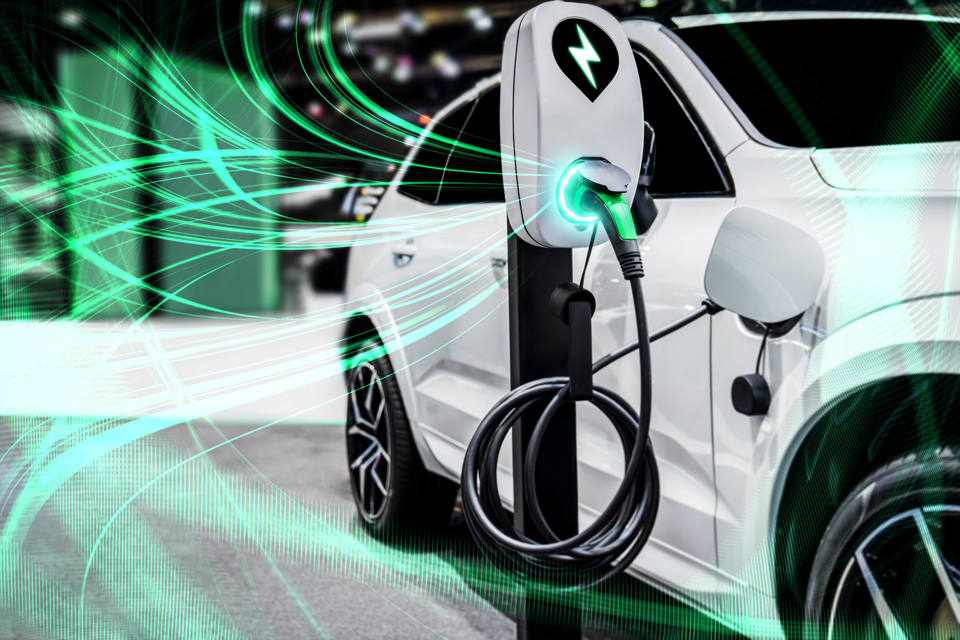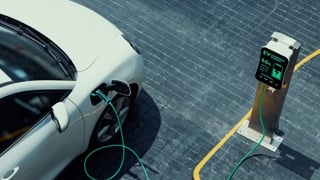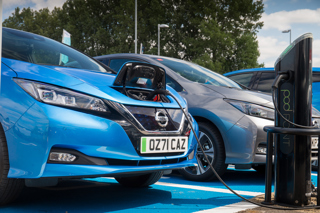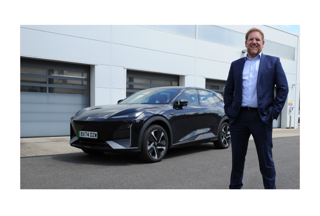The UK government has confirmed it is to launch a £650 million electric vehicle grant scheme which could reduce the upfront cost of new EVs by up to £3,750.
Aimed at households and small businesses, and limited to vehicles priced at £37,000 or below, the grant will be available at the point of sale from July 16, running until the 2028/29 financial year.
While the news has been met with widespread praise, industry leaders have also sounded notes of caution about the long-term balance of the market and the structural barriers that still remain.
Rapid deployment and availability of this grant over the next few years will help provide the momentum that is essential to take the EV market from just one in four today, to four in five by the end of the decade. This announcement is a welcome response to consistent calls from the industry for more support, which will be in addition to the substantive subsidies already provided by manufacturers.
Taken with recent announcements regarding infrastructure investments and the Industrial Strategy, the UK has the opportunity to maintain its position as a leader in both the manufacture and sale of zero emission vehicles.
Mike Hawes, chief executive of the Society of Motor Manufacturers and Traders (SMMT) applauded the decision: "Rapid deployment and availability of this grant over the next few years will help provide the momentum that is essential to take the EV market from just one in four today, to four in five by the end of the decade.
"This announcement is a welcome response to consistent calls from the industry for more support, which will be in addition to the substantive subsidies already provided by manufacturers.
"Taken with recent announcements regarding infrastructure investments and the Industrial Strategy, the UK has the opportunity to maintain its position as a leader in both the manufacture and sale of zero emission vehicles."
Ian Plummer, commercial director at Auto Trader, was quick to point to affordability as the critical hurdle the grant could help overcome.
“Affordability has consistently been the biggest barrier to electric adoption, and it’ll be great to see these grants make it easier for more people to make the switch,” he said.
He noted that while the grant applies only to new electric cars, the ripple effect is likely to benefit the used market too.
“Although this support is only for new EVs, it’s likely the momentum and attention will see even more consumers considering used electric cars too - as we know the majority, almost nine in 10, of electric buyers cross-shop.”
Plummer revealed that the electric share of new and used car searches on Auto Trader’s platform has hit a 2025 high of 8%. Used EV enquiries soar by 92% year-on-year, with demand now fifteen times greater than for new EVs.
Despite a narrowing gap in retail prices - down to a 22% difference between electric and petrol cars in July - the average list price for a new EV remains steep at £49,154 compared to £33,980 for a petrol equivalent.
Plummer encouraged retailers to be ready to seize the momentum, warning: “The used market will be key to unlocking mainstream adoption and so all retailers should be able to capitalise on the broader opportunity this week’s announcement offers.”
The National Franchised Dealers Association also welcomed the move, describing it as a long-overdue response to persistent calls for government action.
“NFDA welcomes the government’s action to boost the electric vehicle market,” said chief executive Sue Robinson. “We have continuously called for urgent measures to incentivise EV uptake, including improving charging infrastructure and providing financial incentives such as the former plug-in grant.”
Robinson acknowledged the government’s improved dialogue with industry and its willingness to respond to concerns raised through the ZEV Mandate consultation, but she warned that many of her members have struggled to shift electric vehicles when consumers continue to perceive them as poor value.
“Our members are in the main EV ready, but they cannot sell EVs when so many are still perceived as representing poor value for money to the consumer. The ‘cost of an EV’ has been consistently top of our surveys as to why a customer will not consider an EV.”
The policy change has met with enthusiasm across motoring organisations. Edmund King, president of the AA, described the move as a “supercharged effort” that aligns closely with what UK drivers have long needed.
“We welcome this positive move to help boost the uptake of EVs. A grant of up to £3,750 is to be celebrated and we urge drivers to take full advantage of this offer,” he said.
He also pointed to broader government measures aimed at easing the switch to electric, including the £63 million investment into improved signage for charging hubs and initiatives to support home charging for those without off-street parking.
Ginny Buckley, chief executive of Electrifying.com, praised the precision of the government’s approach, noting that nearly half of new electric models will now fall within reach of average consumers.
“Nearly one in two new electric models are now more affordable thanks to these long-overdue incentives. Crucially, the support is aimed exactly where it’s needed most: from school-run staples to budget-friendly runarounds, the grants apply to cars that fit the needs of everyday drivers,” she said.
Buckley warned, however, that private buyer demand had stalled in June. “In our latest survey of 11,000 UK drivers, 76% told us upfront cost is the biggest barrier to making the switch. These returning incentives are the spark the private market needs to reignite momentum and give even more drivers the confidence to go electric.”
Toby Poston, chief executive of the British Vehicle Rental and Leasing Association, struck a more cautious tone.
He welcomed the government’s effort to boost the retail market but expressed concern that it might inadvertently destabilise the used EV sector.
“Bit by bit, the government is chipping away at the barriers to EV adoption. Targeted incentives have powered the transition to date and now the government is acting to widen the demand base for new electric cars by providing this grant,” he said.
“This generous grant will boost uptake in the retail market but could have serious repercussions for the used market, where rampant depreciation already has red warning lights flashing.”
Without support for the used market, Poston warned, the supply and demand imbalance could worsen and finance costs may rise. “The resulting losses will erode confidence and result in higher finance costs for new EVs, eliminating much of the benefit from the original grant.”
Stuart Masson, editorial director of The Car Expert, sounded a sceptical tone, saying: “The government’s new £650 million Electric Car Grant, offering up to £3,750 off new electric cars priced under £37,000, looks good in a headline. But in reality, it feels like another policy designed to help car manufacturers far more than ordinary drivers.
“At a time when an overwhelming majority of households buy used cars rather than new, focusing £650 million entirely on new vehicle sales seems short-sighted. There’s nothing here for used EV buyers – no support for those looking to switch from older, higher-polluting petrol and diesel cars to more affordable second-hand electric vehicles. If cutting emissions is the goal, wouldn’t helping these drivers make the most difference?
“Meanwhile, the government’s approach feels inconsistent. This year alone, taxes on EVs have increased: road tax and congestion charge liability are coming for EVs from 2025, and cars priced above £40,000 face the same luxury car tax applied to petrol and diesel models. Now, suddenly, grants are back on the table to drive down EV prices. Such mixed messages undermine public confidence and feed into the myth that EVs are only affordable with government handouts."



















Login to comment
Comments
No comments have been made yet.